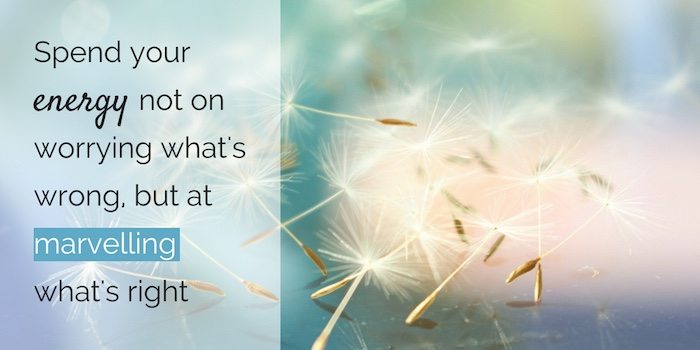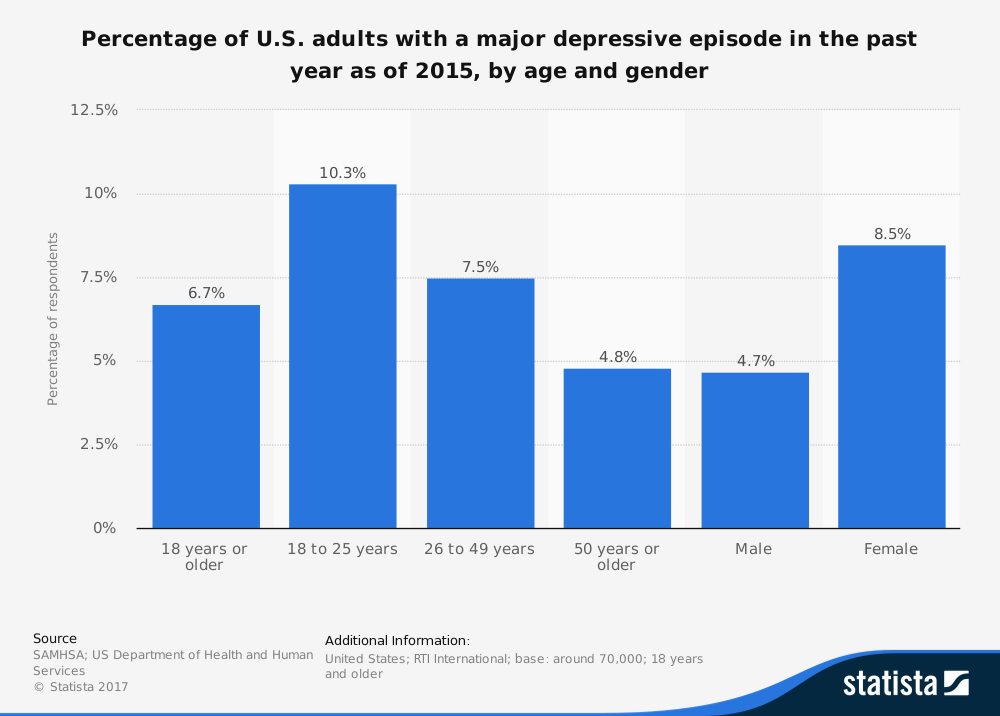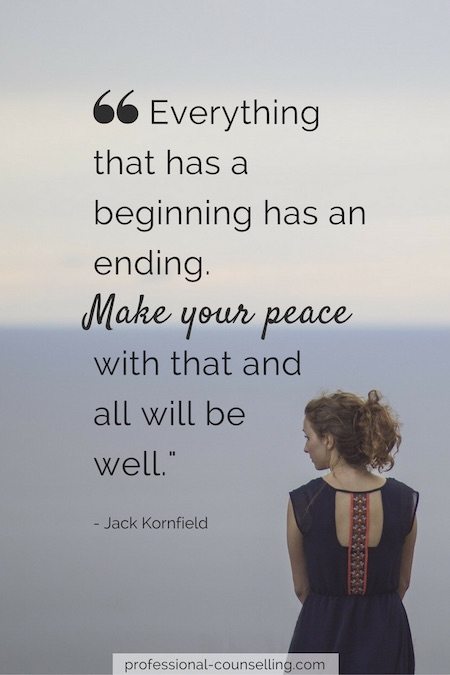Intimate Tickles Thought You Might Be Interested
Published: Mon, 30 Oct 2017 16:26:07 +0000
View Original Article
Author: Elly Prior | First published: 30-10-2017 | Modified: 30-10-2017
You’re looking for treatment for severe depression. I can barely imagine what you must be going through right now. How alone you’re feeling, and perhaps how scared you are. What will become of you? How are you ever going to get better? Perhaps you’ve even already tried one or more types of antidepressants but they’re not agreeing with you or not working (anymore).
If you’re already taking medication, it’s very likely that it’s not helping you much. Research by those not paid by or in any way connected to the pharmaceutical industry has shown that antidepressants don’t work! Quite the opposite, in fact.
Your brain is the centre of your universe. It directs all your internal operations by itself. All you have to do is keep it healthy and engaged. No doctor, medicine, psychologist or other person can do that for you. But the good news is that that means you can overcome depression, all by yourself. Want to find out how? Let’s get cracking!
In this article I’m going to familiarise you with the biological, psychological and social aspects of severe depression treatment. And I’ll introduce you to the most effective major depression treatment there is – without a single pill in sight.
We’ll start off with the biology of it all.
 Your body and mind are simply amazing!
Your body and mind are simply amazing!Do you really have a ‘chemical imbalance’ in your brain?
In a word, no! And one of the simplest explanations for that is because there is no standard, scientifically ‘correct’ balance. Every brain is as unique as the person it’s attached to! That means your particular chemical balance is unique to you.
Know that your body is infinitely capable of balancing the multitude of chemical messengers it produces and co-ordinates. Just take a look at this Wikipedia page⧉ to see how many there are. Simply throwing a synthetic chemical (any kind of psychotropic drug) into your body’s natural mix is undoubtedly going to create an imbalance.
But isn’t depression caused by a lack of serotonin? Another simple answer: no! That low serotonin level story was created by the pharmaceutical companies. They knew they could take advantage of the medical model to market their wares. You might have heard of some of them:
- Vilazodone (Viibryd)
- Citalopram (Celexa)
- Vilazodone (Viibryd)
- Fluoxetine (Prozac)
- Paroxetine (Paxil, Pexeva)
- Sertraline (Zoloft)
- Escitalopram (Lexapro)
But I’m afraid to say it’s more likely that any of the above will worsen depression, rather than cure it.
Want some good news? Your brain is not broken! You’re not suffering from a biochemical imbalance. Before I say this next bit, it’s important that you know that I’m not minimising how you’re feeling right now. I’m on your side, and I actively want you to feel better again. I know everything you’re feeling is only too real. And I suspect depression is starting to ruin your life (if it hasn’t already). So stick with me, and keep an open mind…
Depression itself is not an illness. Pharmaceutical companies needed it to become an illness so that they could sell a ‘cure’. Instead, depression is a symptom that manifests itself as consequence of two distinct things:
- Elements of your life that have gone off course (for whatever reason), and…
- How you respond to and deal with the difficulties and challenges that arise as a result
For this reason, severe depression treatment should not include the prescription of psychoactive medication. For one thing, it’s not necessary. And for another, because the risks are so well-documented, I find it incredible that they are routinely ignored!
Below this article you’ll find references for further information. Be sure to avail yourself of the knowledge acquired by specialists who aren’t in any way connected with any pharmaceutical companies. And don’t be persuaded by clever television marketing.
You’re not alone!
Stats about depression

Side effects of prescribed antidepressants – why they aren’t safe
15 reasons to avoid taking prescribed medication as a major depression treatment
Prescribed antidepressant medications:
- can increase the feeling of being out of control;
- may increase your dependence on outside sources of help;
- don’t deal with the real problem;
- don’t help you to meet your emotional needs (see further down);
- may make it more likely that you’ll relapse in the future;
- are only 3% more effective than a placebo (even that is questionable, as most people in studies know that they’re taking the antidepressant and not the placebo – on account of the side effects);
- can cause sleep problems – either frequent awakenings during the night, or sleepiness during the day (no surprise if both co-exist of course);
- may reduce important dream sleep (your body/mind’s natural way to cope with excessive focusing on your troubles and challenges when you’re awake);
- can cause or increase restlessness;
- can cause sexual problems such as decreased libido. (This was the bane of my life as a couple counsellor. Why put someone with relationship problems on antidepressants when they cause difficulties reaching an orgasm, a lack of desire and erectile problems? It makes repairing the relationship – the primary cause of the trouble in this case – even more difficult.);
- might cause unpleasant withdrawal effects, from mild to very severe, depending on how long you’ve been taking them (anti-anxiety drugs will have you hooked in just 6 weeks!)*
- can cause permanent damage in your brain, including movement disorders (Google it – you’ll want to know about it!);
- may cause rapid weight gain (forget about finding an antidepressant that causes weight loss!), constipation or diarrhoea (your gut is sometimes called your second brain);
- can lead to suicidal and homicidal behaviour (yes, really! Don’t believe your doctor if he or she tells you otherwise) – the best evidence that antidepressant medication is not a suitable treatment for severe depression;
- may increase your risk of chronic depression significantly.
Watch/listen to discover how the problems with antidepressants are minimised by the very people who should have your best interest at heart…
Your body and mind are infinitely more complex and wise than anything any pharmaceutical industry can come up with.
As a psychotherapist, I used to hate it if people had been put on antidepressants at the same time as being referred to me. How would they ever get to trust that it was their own actions that got them better and not the antidepressants!
Important: If you’re taking medication at the moment, don’t panic now that you’ve read this list. And whatever you do, don’t stop taking it suddenly. If you want to come off it, talk to your doctor first. You’ll need to do it gradually and safely.
The best depression treatments
You now know that it’s not a lack of serotonin that you need to fix. I hope it’ll also help you to know that most episodes of depression pass without any (external) intervention at all. There are two major things you can do to help yourself:
- Take specific actions to deal with the things you have control over
- Change your perception of the things you have no control over
And there are three fundamental things we all need in order to be healthy (physically and mentally): a nutritious diet, regular exercise and good sleep.
I know you’re probably severely lacking energy and motivation at the moment. That means taking action of any kind can seem overwhelming and perhaps even impossible. But I know you can do it. I also know it’s hard, but just take one step at a time. It’s not a race. You can go at your own pace, just as long as you do keep moving.
Food and exercise to improve your mood and beat depression
Sugar can also lead to excessive insulin release that can lead to hypoglycemia, which, in turn, causes your brain to secrete glutamate in levels that can cause agitation, depression, anger, anxiety, panic attacks, and an increase in suicide risk.”[3]
Dr Mercola
A healthy, balanced diet is so important for every aspect of your physical and emotional well-being. Essentially, as I’m sure you already know, food is the fuel that allows you to function. How well your body performs (including your brain) depends on the quality of the fuel you feed it.
I know that chips, sweets, pizza, fizzy drinks, alcohol and anything laden with sugar or carbs can be so appealing, especially when you’re feeling so miserable. And that you get a temporary high when you eat them. But, it really is temporary, and it’s only a fake high. Believe me when I say: sugar and carbs are not the answer. (Sorry!)
Unless you eat well, your brain becomes starved of the nutrients it needs to function at its best. And eating well involves plenty of fresh fruit and veg, enough protein, and a balanced amount of carbs and healthy fats.
You know how you can feel sluggish and low on energy when you’ve eaten junk food? Well, that’s how your brain feels, too. And trying to restore the balance to an upset mind becomes an almost impossible task.
A poor diet can also lead to inflammation, and there are now reports of a link between the onset of depression and inflammation⧉ in the body.
Eating well doesn’t have to be expensive, nor does it have to involve fancy cooking. If you need to, take some time to educate yourself about a healthy diet. And start putting what you learn into practice. This is one of the best ways you can lay the groundwork to give yourself the best chance of overcoming depression once and for all.
And even better, introducing exercise to increase the health of your lifestyle can play a significant role in helping you to overcome depression too. There are plenty of studies devoted to the beneficial effect of exercise on depression. To give you just one example, take a look at this article in the Telegraph⧉.
Improving your sleep as part of severe, clinical or major depression treatment
You may be sleeping too much or not enough. Either way, you’ll need to actively deal with this particular problem because sleep is one of our best natural protectors against mental health problems.
Sleep problems can be a little tricky to deal with. But don’t worry – I’ve got you covered. I’ve written several articles dedicated to overcoming problems with sleep:

Severe depression treatment: the psychological approach
Talking therapy is a great way to treat severe depression in a variety of ways. Depending on your needs, counselling or therapy can help you to…
- Get things off your chest without the fear of being judged
- Calm down
- Understand how your brain works
- Understand yourself more
- Understand others better
- Build better relationships – at home and at work
- Consider how realistic your expectations are of your relationships with friends, family, work colleagues, and your partner
- Explore solutions to difficulties you have some control over
- Change how you think about stuff you don’t have any control over
- Re-engage with life- and mood-enhancing activities
- Set goals so that you can look forward instead of staying stuck in unhelpful patterns
- Become more resilient and future-proof you against the inevitable challenges of everyday living and major life events
- Cope with the psychological impact of life-changing health problems
- Deal with major losses
- Overcome the psychological consequences of childhood adversity
A note of caution!
Do not let yourself be submitted to endless navel-gazing. It’s particularly counter-productive when you’re depressed. As you’re very likely to have a negative bias while you’re feeling low, you’ll only recall stuff that’s gone wrong in your life. And that’s no help at all when you’re already depressed. Sure, there may be some work to be done to process difficult childhood events and their consequences on your mental health. However, as a severe depression treatment, it needs to be timed well and balanced with plenty of life-enhancing strategies.
(By the way – don’t worry about the difference between counselling and therapy. The one thing that really makes a difference to the success of your treatment is the quality of the professional relationship you have with the person who’s helping you) (2)
Major depression treatment: dealing with the social aspects of your life
Living your life means constant trial and error, and plenty of learning, unlearning, hellos, goodbyes, great relationships, lousy relationships, endings, pain, messy feelings, etc.
There is no one way of living your life that can prevent all that messiness, challenge, pain, disillusionment and frustration. But you shouldn’t really want to, either. Because without all that, there wouldn’t be any excitement, hope, achievement and joy!
So, here’s the best treatment for depression – major, minor, clinical or any other name you want to give it. Don’t forget, it’s not its own illness. It’s the emotional consequence of a temporary downturn in your fortunes or even a life terribly gone awry.
The best treatment for depression
The best treatment for any kind of psychological upset is understanding and working with your natural inborn resources – the Human Givens.
You were born with the physical means for blood to be pumped through your body: your heart, arteries and veins, to name the most obvious. And you were born with the mental and emotional means to deal with the world around you. You’ve got innate resources to meet your essential emotional needs in balance. When these needs aren’t balanced, it’s difficult for you to function at full, healthy capacity.
What precisely are those needs?
To name but a few:
- The need to connect with other people and your environment
- The need for time and space to reflect on and learn from your experiences
- The need for fun, love and laughter
- The need for a sense of achievement
- The need to give and receive attention
(I encourage you to learn more about this concept in my article on the Human Givens. It has the potential to revolutionise the way you live your life.)
Perhaps you can see how all the needs above are linked. Maybe you can also see that when something in your life went wrong and you became depressed, you stopped attending to those needs.
Instead, you probably turned inwards, and focused mainly on how bad you were feeling. You probably started to withdraw from the people around you. Maybe you started taking antidepressants which would have flattened your mood – including any feelings of fun, love and tenderness you had left.
Using the Human Givens approach, the best treatment for severe depression is therefore relatively simple. Note: I’m not saying it’s easy. It will take effort, motivation and commitment. And I know they can all be hard to come by when you’re feeling so low. But even just a teaspoon of each is all you need to begin with. Keep in mind that the ultimate goal is that you feel better. And you deserve to feel better, so you are worth making the effort for!
Treating severe depression by meeting your needs in balance
I’m now going to get you started on the Human Givens approach to severe depression treatment. This will help you to start moving in the right direction. It’s not a full treatment plan – but that would be overwhelming and off-putting!
So, to begin with…
3 Steps for meeting your need to give and receive attention
- Reconnect with loved ones. Start slowly – just a 20 minute visit if that’s all you can manage right now. Bring love and light to people who love you – it’ll do you good too.
- Aim to remember and share with them their birthdays, their troubles, their joys and their achievements. If you struggle with your memory at the moment, write all the important stuff down.
- Cook a meal for someone who needs your support and friendship once a fortnight. If you don’t feel up to eating with them, simply drop off an oven-ready meal for them to eat later :-).
3 Steps for meeting your need to have time and space for contemplation
- Schedule 2 x 20 minute slots each day to simply think. Think about what’s wrong, and what’s right. Don’t do anything else during your thinking time. Just think.
- Consciously think about all of the good things that have happened each day. Don’t allow your mind to focus only on the negatives. When you notice a negative thought, counterbalance it with a positive thought.
- Before going to sleep every night, remind yourself of 3 things you’re grateful for that day. They don’t have to be big things – maybe you’re just grateful it didn’t (or did!) rain when you were outside earlier!
3 Steps for meeting your need to have a sense of achievement
- As improving your diet is important when you’re dealing with depression, make this something you work towards achieving. Write down every step you take to improve your food intake. Consistent baby-steps are best – and make sure you take the time to appreciate every successful improvement you make
- The same goes for exercise. Try to be active every day, even if you can only manage a 5 minute walk. Something is better than nothing. And build on what you can manage each day or each week. Before too long, your 5 minute walk might turn into a 60 minute walk. And that’s something to be proud of for sure!
- Try your hand at new things. Again, you don’t have to do anything drastic. Try cooking a new food, or finding a different route to work, or meeting a friend in a new place. Setting yourself mini challenges to meet will help you to keep achieving new things. And you can increase the scale of your challenges each time, as you need a bigger fix of the achievement rush you experience with every success!
The best depression help – online
These days it is easy to access really good help online. You can connect now with a professional, licensed therapist for help with that depression – online. To discover how that works, see my article on Mental Health Counselling.
I also highly recommend self-hypnosis for depression. For further information, see my article: Hypnosis FAQ and Downloads.
Finally…
I so hope that knowing you do have the ability to heal yourself has made you feel empowered. Treatment for severe or major depression treatment doesn’t have to involve medication (and in my opinion, it absolutely shouldn’t).
I know you have the courage and the strength to overcome this painfully difficult time. I also know that you deserve to be happy and to feel fulfilled. Getting over depression can be really hard work – but the payoff by far outweighs the difficulties of the recovery journey. When you get better – which I know you will – you’ll be healthier, happier… and you’ll be able to protect yourself from ever having to feel this way again in the future.
New! Rate this article (anonymously)…
I really hope this article is of help to you. 🙂
I frequently update my articles based on feedback, therefore I really value your vote. If you think I’ve missed something, please do let me know in the comment section below.
Thank you so much in anticipation. 🙂
Related articles
Hypnosis FAQ and Downloads
Specially for Men: How to Deal with Depression
Fish Oil and Depression
Dealing with a Nervous Breakdown?
Alcoholism and Depression
Sources
1 “Psychiatric Drugs: Do They Fix Imbalances or Do They Create Them – Part 1 – Robert Whitaker.” YouTube. YouTube, 17 Feb. 2016. Web. 30 Oct. 2017.
2 Ardito, Rita B., and Daniela Rabellino. “Therapeutic Alliance and Outcome of Psychotherapy: Historical Excursus, Measurements, and Prospects for Research.” Frontiers in Psychology. Frontiers Research Foundation, 2011. Web. 27 Oct. 2017.
3 “Important Factors Typically Ignored in Depression Screening Tests.” Mercola.com. N.p., n.d. Web. 30 Oct. 2017.
Do you need help?
Don’t know what to do anymore? Need help?
Connect with a licensed therapist now…
Your problem is never too small or too big, too silly or too complicated to ask for help from a licensed therapist.
Connect with your therapist as often as you like in confidence (no need even to give your real name).
Get help now in 3 easy steps:
- Click the image below and fill in the three online questionnaires (it takes just a few minutes)
- Complete the sign up process
- Choose how to pay (it’s safe and secure)
Then all you need to do is to write down your troubles!
You won’t believe what a breath of fresh air it is to be able to discuss your problems with your own professional. Someone who takes the time to really ‘get you’ and offer tailored guidance to suit you and your particular circumstances.
CLICK HERE to start now or click the image…
I want to upfront with you – I earn a commission from BetterHelp. This is how I earn an honest income, whilst giving away tonnes of free information throughout my site. You pay the same fee, regardless.
Found this page helpful?
Pay it forward – like and share…
Comment, help or be helped

Hello you! 🙂
It’s me – Elly Prior, I’m the Founder and Author of this site. I’m a ‘real’ person! I’m hoping to make a positive difference, small or large, to every person who visits my site.
Do feel free to ask for help. I would be delighted to write a few lines to support you (please keep it short).
Alternatively – there are licensed therapists waiting to help you right now. You can connect with a therapist as often as you want on any device, whenever it suits you. For further information, see my page: Online Relationship Advice.